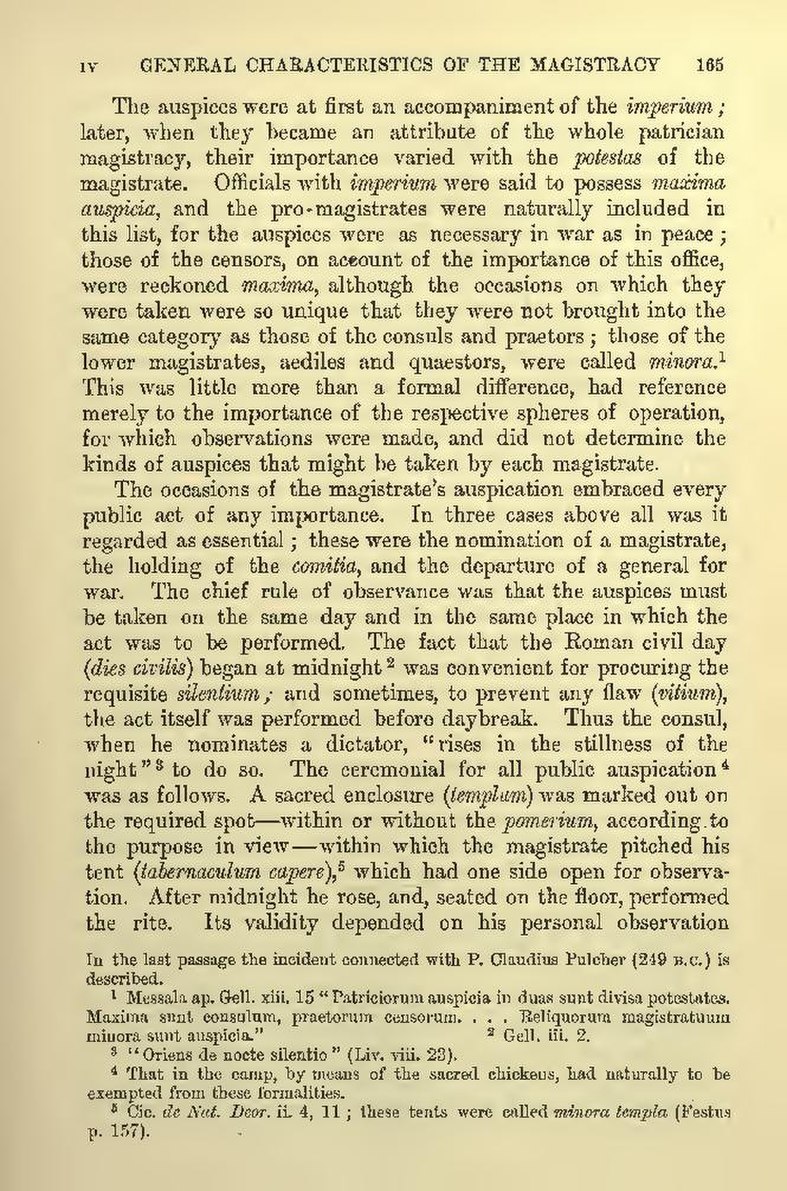The auspices were at first an accompaniment of the imperium; later, when they became an attribute of the whole patrician magistracy, their importance varied with the potestas of the magistrate. Officials with imperium were said to possess maxima auspicia, and the pro-magistrates were naturally included in this list, for the auspices were as necessary in war as in peace; those of the censors, on account of the importance of this office, were reckoned maxima, although the occasions on which they were taken were so unique that they were not brought into the same category as those of the consuls and praetors; those of the lower magistrates, aediles and quaestors, were called minora.[1] This was little more than a formal difference, had reference merely to the importance of the respective spheres of operation, for which observations were made, and did not determine the kinds of auspices that might be taken by each magistrate.
The occasions of the magistrate's auspication embraced every public act of any importance. In three cases above all was it regarded as essential; these were the nomination of a magistrate, the holding of the comitia, and the departure of a general for war. The chief rule of observance was that the auspices must be taken on the same day and in the same place in which the act was to be performed. The fact that the Roman civil day (dies civilis) began at midnight[2] was convenient for procuring the requisite silentium; and sometimes, to prevent any flaw (vitium), the act itself was performed before daybreak. Thus the consul, when he nominates a dictator, "rises in the stillness of the night"[3] to do so. The ceremonial for all public auspication[4] was as follows. A sacred enclosure (templum) was marked out on the required spot—within or without the pomerium, according to the purpose in view—within which the magistrate pitched his tent (tabernaculum capere),[5] which had one side open for observation. After midnight he rose, and, seated on the floor, performed the rite. Its validity depended on his personal observation
- [Footnote: In the last passage the incident connected with P. Claudius Pulcher (249 B.C.) is
described.]
- ↑ Messala ap. Gell. xiii. 15 "Patriciorum auspicia in duas sunt divisa potestates. Maxima sunt consulum, praetorum censorum. . . . Reliquorum magistratuum minora sunt auspicia."
- ↑ Gell. iii. 2.
- ↑ "Oriens de nocte silentio" (Liv. viii. 23).
- ↑ That in the camp, by means of the sacred chickens, had naturally to be exempted from these formalities.
- ↑ Cic. de Nat. Deor. ii. 4, 11; these tents were called minora templa (Festus p. 157).
